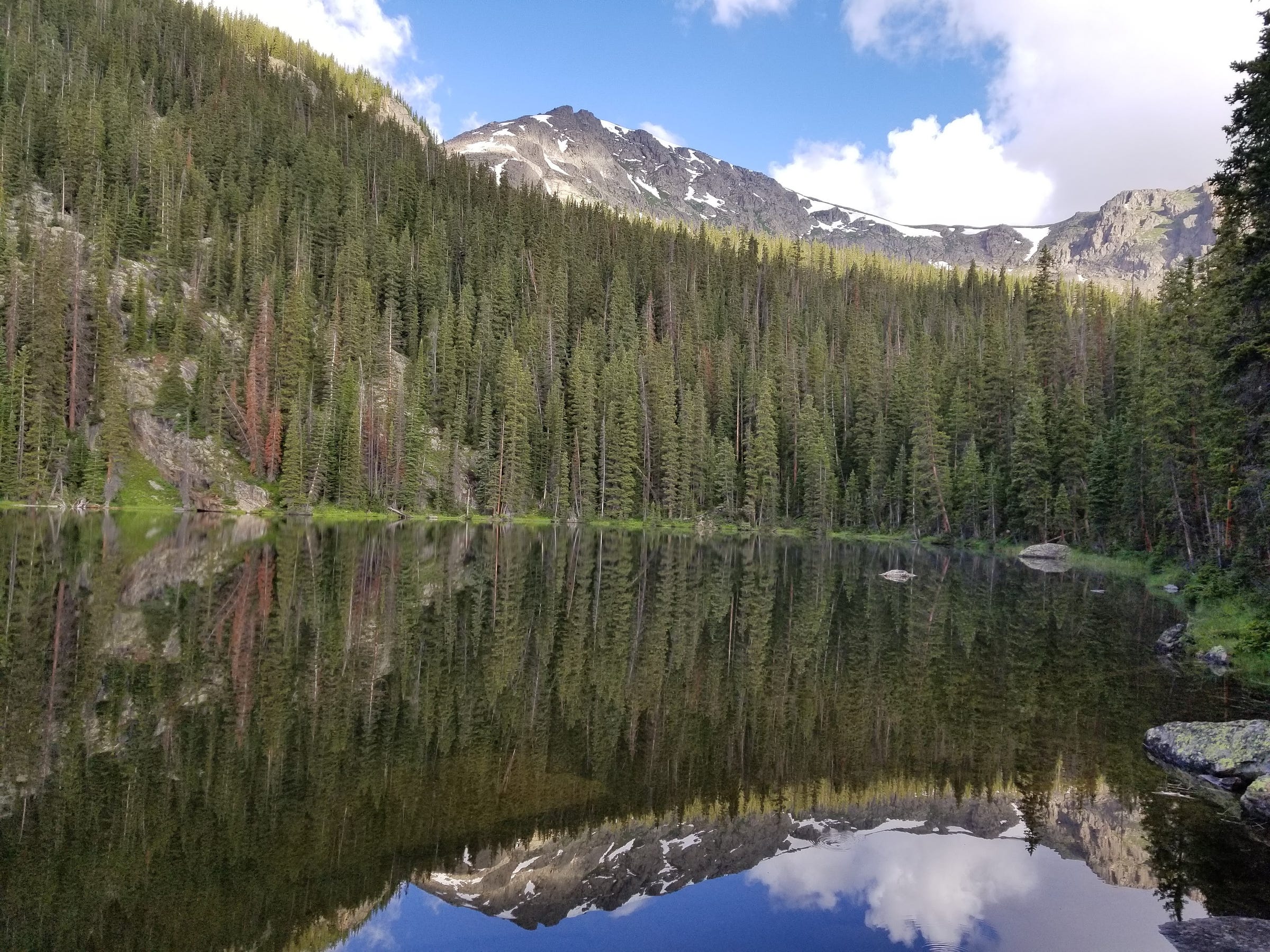The Natural Noise We've been Drowning Out
Our go-to method for problem solving actually raises our anxiety and stress. Here's how we can reclaim silence and calm in our chaotic lives:
My family home had no air conditioning. It had something better: a perch above the Long Island Sound, and a cool offshore breeze. On hot summer nights, we couldn’t’ve slept without it.
I remember laying in the dark with all the windows wide open, hearing the midnight waves lapping at the rocky shoreline below the bluff. Periodical. gentle. Every few minutes, a bigger breaker — perhaps thrown by a passing tanker ship — would come cascading onto the shore in a sloshing splash.
I would look up at the ancient, flowery curtains above my window, hand sewn by my great grandmother. The red and gold fabric almost seemed to breathe, rising as the breeze filled the cottage. I can still imagine the sound they made when the wind changed direction and sucked the curtains back against the screens: like the thump of a hand slapping muted guitar strings.
This weird, intermittent percussion, the rolling waves and the gentle breeze would lull me to sleep on those nights.
Now, I play soothing ocean sounds on my phone to calm my mind. But a recent conversation has me re-thinking this approach.
When I was a kid, my parents got my brother and I each deck of “Sneaky Cards.” If you’re not familiar, every card in your set bears some kind of task for you to complete, before passing it along to someone else. The objective is to deplete the entire deck, then use your unique code printed on the box (and each of your cards) to see where they all end up.
Some require you to perform silly challenges or go to exciting places. I left the “landmark” card here, where another curious traveler picked it up and brought it to the other side of the country:

The most obstinately difficult card to get rid of was a screen-free challenge. 24 hours without phones, TV, or computers. Try it, and you’ll see just how much that box of digital opium we call a phone has embedded itself in your life.
It’s displaced the alarm clock, music player, GPS, camera, fitness tracker, note pad, meditative guide, and occasionally — as I mentioned — a white noise machine.
I was determined to off-load the card, and a three-day camping trip offered up the perfect opportunity. From the time we scrawled our names in the trailhead logbook, my phone stayed off, tucked securely into the bottom of my Osprey pack.
After a slow, uphill hike through aspen groves and dark thickets, we arrive at the edge of a mountain lake. We drop our packs, pitch the tents, and string up our bear bag before hunkering down for some well-deserved rest.
The darkness out here is different from the cities and suburbs. There are no twinkling street lamps; no slats of passing car headlights bleeding through the curtains. Just the glow of the moon and the stars filtering through the tree canopy.
There’s no hum of the air conditioner either; no whoosh of cool air blowing through the vents. At first, the remote wilderness seems completely silent, save for my slow and deliberate breathing.
As my ears get used to the reduced level of stimulation, I find myself picking up on new, previously hidden ambient sounds. The treetops rustling in the breeze. A chorus of crickets chirping in near perfect unison. In the distance, the hooting of a perched owl rises above the rest of the noise, cutting through the night.
Then the rain begins.
The droplets come down gently, tapping on my tent like tiny fingers on a drum. I watch their shadows race down the fly, leaving long trails.
I lay on my back, staring at the tent’s domed ceiling. With heavy eyelids, I contemplate using my phone to take a recording; something to playback on future sleepless nights.
Rats, I realize, my phone is at the bottom of my bag, all the way across the campsite. Then I remember my card, my challenge, and my promise to keep this trip screen-free. I shimmy deeper into my sleeping bag. It wouldn’t be the same, anyway, I tell myself, letting the wild symphony play me out of consciousness
Sound is Additive
My exhausted brain had been right, of course: A recording would have compressed the layers and complexities down, somehow squeezing out the soul. And even if I’d managed to capture the sounds perfectly, I’d be playing it back in an environment where these beautiful, subtle details would be competing for attention with the mundane ambient noise of civilization.
That’s the real reason those recordings never quite measure up: you can never achieve a peaceful state by trying to drown out the chaos with more layers of noise. I’m not just talking in metaphors here; there’s a science to this.
If you didn’t know: one sound never actually replaces another. Sound is additive. If the traffic outside your apartment at night is 4 Decibels, and you throw on a white noise recording of a thunderstorm at 6 — guess what? You’ve actually just made your room louder, raising the ambient noise to 10 Db. The traffic is still there. You’re just not focusing on it.
In this way, I think noise is the perfect stand-in for stress and anxiety. Most of us are absolutely terrified of being alone with our own thoughts. When we encounter a bothersome sound, we don’t retreat in search of silence. We pile on additional noise; “background” TV shows, podcasts, and livestreams we only partially pay attention to. We plaster over distractions with more distractions, all the while adding to the volume.
I sat down to write this piece after having a long talk with Matt — the musician behind the Fog Chaser project, and featured guest on next week’s episode of Trail Talk.
We spend some time discussing the search for inspiration in nature. But we also talk about sensory overload, the overabundance of noise, and why spending time outside is one of the few ways you can actually turn the volume down.
My Challenge to You
In keeping with the Sneaky Card challenge that inspired this piece — they’re great fun by the way, if you’d like your own deck, you can look here — I have my own challenge to you: pursue meaningful silence. Strip away some of those layers of sound; don’t add any more to them. Listen carefully to the noise you’ve been drowning out and ask why you didn’t want to hear it.
You may surprise yourself.
I Want to Hear from You
Are there any particular sounds in nature that soothe you?
Do you catch yourself using some of the distractions I mention above, to fill the silence?
Have you tried giving up on screen time? How did it go?
If you’d rather send your thoughts to me directly, that’s fine too. You can shoot an email to colenobleclimbs@gmail.com. I do read all my emails. If you don’t mind, dropping a like on this post is also supremely helpful to me.
To be notified as soon as next week’s podcast comes out: subscribe to Cole’s Climb or follow Trail Talk on Spotify. You’ll get a link to listen as soon as it’s live!







I hear you loud and clear. The sounds and rhythms of nature are speaking loudly to us currently. We work really hard to stay grounded in the midst of our screen time and recording technology. I live with musicians and in a recording studio and among some of the best recording technologists of our times. The challenges are real, urgently important. For our children and future generations. No recording can ever replace the live sounds of nature, voices, acoustic instruments.
Love these posts, Cole. Thanks!